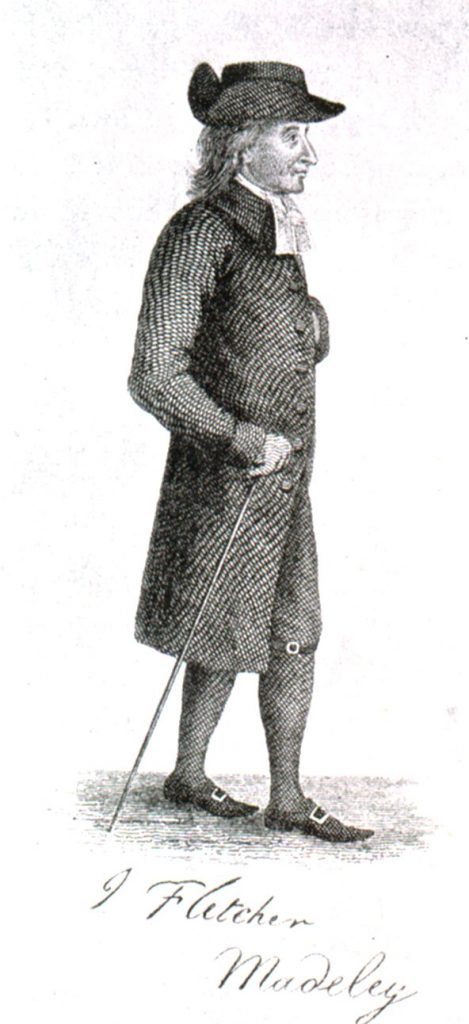
The important early Methodist John William Fletcher (1729-1785) wrote a short piece called Remarks on the Trinity, which has some, well, remarkable lines in it. On the Trinity.
Fletcher has much to say on the subject of the Trinity, but apparently he was specifically provoked to write by Joseph Priestley, the unitarian. Fletcher says:
Some readers will perhaps demand why the trinity is so frequently mentioned in this work. Of what advantage is the doctrine? Dr. Priestley wished to know its use in morality and piety. “Does it render men more holy and happy?” An answer to this question shall be my apology.
The test of a doctrine being practical is whether it produces in its believers holiness and happiness; happiness in that broad eighteenth-century sense that still resonated with ideas of objective blessedness. Here is how Fletcher argues that the doctrine of the Trinity makes people holy and happy:
Scripture and experience concur in showing this to be the only mean of bringing sinners to that happy condition, in which they said, “We have access to the Father, by Jesus Christ, through the same Spirit: being justified by faith, we have peace with God, [the Father,] by our Lord Jesus Christ: we rejoice in hope of the glory of God; and we glory in tribulation, because the love of God is shed abroad in our Hearts, by the Holy Spirit given unto us.” It is sufficient to read this two‑fold evidence in the Epistles and Acts of the apostles, to see that the holiness and happiness of the first Christians depended on the experimental knowledge of the mystery of the holy trinity: or of God manifested in their souls as Father, Son, and Holy Ghost; or as Creator, Redeemer, and Sanctifier.
In exploring this assertion, Fletcher spends some time denouncing a variety of non-trinitarian errors of his day. But he is also willing to admit that simply holding to an orthodox creed on trinitarian matters is not adequate to produce holiness and happiness. In fact, he identifies the dead periods of Christian history as periods in which the churches “instead of growing in holiness, by a more lively knowledge of the Redeemer, and Sanctifier, contented themselves with repeating forms of faith.” In these cases, “they shortly substituted the repetition of orthodox creeds for true Christian faith, which works by love, and is always fruitful in good works.” As an early Methodist, Fletcher of course included the deadness of the contemporary Church of England among the spiritually moribund, who merely repeated orthodox terms but lacked the power confessed in those very terms.
The conditions for a revival of true religion? According to Fletcher, it’s more Trinity:
The Church will remain in this state, until the ministers preach with zeal, and the people embrace with ardour, the sacred doctrine of Father, Son, and Holy Spirit, which includes repentance toward God the Father, faith in our Lord Jesus Christ, and love shed abroad in the heart by the Holy Spirit: love, the mother of good works, and the distinguishing badge of true Christians. From hence it follows, that Christian virtues flourish or decay, in proportion as the doctrine of the Trinity is rendered clear, or obscured among men; for it is on this foundation that the gospel becomes the power of God to salvation to all who believe. And it should be remembered, that faith in the Father, Son, and Holy Spirit, of which we speak, is the gift of God (Eph 2:8), and not the word of a nurse, or the dictate of a catechist. It is a Divine energy, which is “the substance of things hoped for, a cordial demonstration of things not seen;” for we believe with the heart unto righteousness, before we can make confession with the mouth unto salvation.